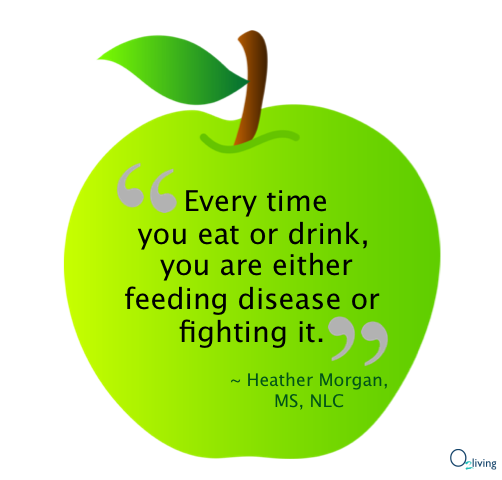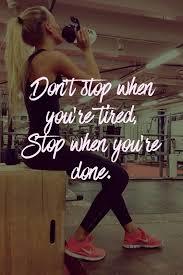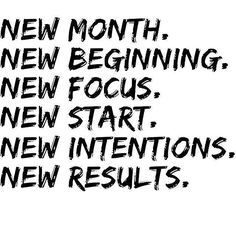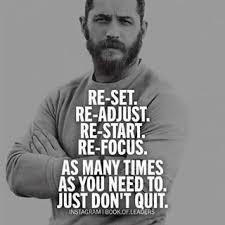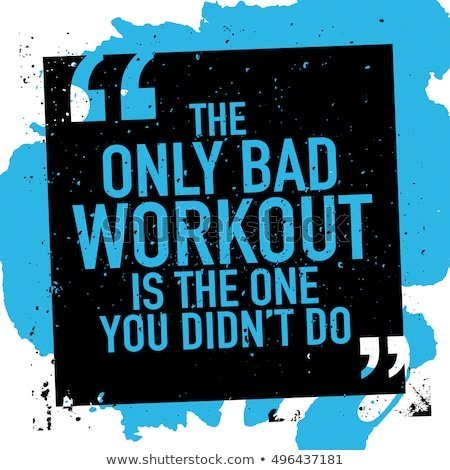Book Nook Cafe discussion
Health-Exercise-Diet- Beauty
>
Health ~ Diet ~ Exercise ~~~ 2019
message 1:
by
Alias Reader
(new)
Dec 31, 2018 01:39PM


reply
|
flag


Here is a good way to reach your 2019 diet/exercise goals.
S.M.A.R.T
According to the time management firm FranklinCovey, one third of resolutioners don’t make it past the end of January.
A lot of these resolutions fail because they’re not the right resolutions. And a resolution may be wrong for one of three main reasons:
It’s a resolution created based on what someone else (or society) is telling you to change.
It’s too vague.
You don’t have a realistic plan for achieving your resolution.
Your goals should be smart — and SMART. That’s an acronym coined in the journal Management Review in 1981 for specific, measurable, achievable, relevant and time-bound. It may work for management, but it can also work in setting your resolutions, too.
Specific. Your resolution should be absolutely clear. “Making a concrete goal is really important rather than just vaguely saying ‘I want to lose weight.’ You want to have a goal: How much weight do you want to lose and at what time interval?” said Katherine L. Milkman, an associate professor of operations information and decisions at the Wharton School of the University of Pennsylvania. “Five pounds in the next two months — that’s going to be more effective.”
Measurable. This may seem obvious if your goal is a fitness or weight loss related one, but it’s also important if you’re trying to cut back on something, too. If, for example, you want to stop biting your nails, take pictures of your nails over time so you can track your progress in how those nails grow back out, said Jeffrey Gardere, a psychologist and professor at Touro College of Osteopathic Medicine. Logging progress into a journal or making notes on your phone or in an app designed to help you track behaviors can reinforce the progress, no matter what your resolution may be.
Achievable. This doesn’t mean that you can’t have big stretch goals. But trying to take too big a step too fast can leave you frustrated, or affect other areas of your life to the point that your resolution takes over your life — and both you and your friends and family flail. So, for example, resolving to save enough money to retire in five years when you’re 30 years old is probably not realistic, but saving an extra $100 a month may be. (And if that’s easy, you can slide that number up to an extra $200, $300 or $400 a month).
Relevant. Is this a goal that really matters to you, and are you making it for the right reasons? “If you do it out of the sense of self-hate or remorse or a strong passion in that moment, it doesn’t usually last long,” said Dr. Michael Bennett, a psychiatrist and co-author of two self-help books. “But if you build up a process where you’re thinking harder about what’s good for you, you’re changing the structure of your life, you’re bringing people into your life who will reinforce that resolution, then I think you have a fighting chance.”
Time-bound. Like “achievable,” the timeline toward reaching your goal should be realistic, too. That means giving yourself enough time to do it with lots of smaller intermediate goals set up along the way. “Focus on these small wins so you can make gradual progress,” Charles Duhigg, author of “The Power of Habit” and a former New York Times writer, said. “If you’re building a habit, you’re planning for the next decade, not the next couple of months.”
https://www.nytimes.com/guides/smarte...
I read The Power of Habit: Why We Do What We Do in Life and Business by Charles Duhigg that is mentioned in the article. I thought it was quite good and I recommend it.
 https://www.buzzfeednews.com/article/...
https://www.buzzfeednews.com/article/...Plogging-
I just ran across this article and I do this when walking with my husband or on my own. My husband thinks it is disgusting but I usually carry a bag and now I have justification for doing it! Yes!!
 Julie wrote: "https://www.buzzfeednews.com/article/...
Julie wrote: "https://www.buzzfeednews.com/article/...Plogging-
I just ran across this article and I do this when walking with my husband or on my ow..."
I think that is awesome, Julie.
It reminds me of the author David Sedaris
He picked up so much trash on his walks (he is addicted to Fitbit)
the town named a garbage truck after him !
http://time.com/3062558/garbage-truck...
 Alias, I just listened to David Sedaris tell that story yesterday, while I was out jogging. It's in his book Calypso. He certainly was (is?) addicted to his fitbit and walked (walks?) 25 miles a day, picking up garbage.
Alias, I just listened to David Sedaris tell that story yesterday, while I was out jogging. It's in his book Calypso. He certainly was (is?) addicted to his fitbit and walked (walks?) 25 miles a day, picking up garbage.
 Petra wrote: "Alias, I just listened to David Sedaris tell that story yesterday, while I was out jogging. It's in his book Calypso. He certainly was (is?) addicted to his fitbit and walked (walks..."
Petra wrote: "Alias, I just listened to David Sedaris tell that story yesterday, while I was out jogging. It's in his book Calypso. He certainly was (is?) addicted to his fitbit and walked (walks..."It's one of my favorite stories as I am a fitbit person, too. Though I only manage about 5-8 miles a day on average.
 Alias Reader wrote: "Petra wrote: "Alias, I just listened to David Sedaris tell that story yesterday, while I was out jogging. It's in his book Calypso. He certainly was (is?) addicted to his fitbit and..."
Alias Reader wrote: "Petra wrote: "Alias, I just listened to David Sedaris tell that story yesterday, while I was out jogging. It's in his book Calypso. He certainly was (is?) addicted to his fitbit and..."Twenty five miles is a lot - though I think how much slimmer I would be-however I would have to give up working, housecleaning and maybe reading to get all those miles in! LOL!
 Julie wrote: "Twenty five miles is a lot - though I think how much slimmer I would be-however I would have to give up working, housecleaning and maybe reading to get all those miles in! LOL! "
Julie wrote: "Twenty five miles is a lot - though I think how much slimmer I would be-however I would have to give up working, housecleaning and maybe reading to get all those miles in! LOL! "Unless you are jogging/running that does take a long time to walk.
"The average time it takes most people to walk a mile is about 20 minutes (walking at about 3 mph). If you walk briskly, it will probably be more like 15 minutes."
 Petra wrote: "David said it took him about 9 hours each day. That's almost 3 miles an hour."
Petra wrote: "David said it took him about 9 hours each day. That's almost 3 miles an hour."That's a lot of time spent walking.
 Wow, 9 hours a day! And i'm pleased with myself if i manage 30 minutes.
Wow, 9 hours a day! And i'm pleased with myself if i manage 30 minutes.Re. plogging. We have done this on & off since returning to Texas in '07. Initially my husband only picked up aluminum cans because we could get money for them, while recycling. After plenty of chastisement from me, he added all trash, walking with TWO bags. LOL! However, once we sold that house, we tend to forget to take trash bags. Great habit--thanks for the reminder, Julie.
 That's a crazy amount of time for walking. It's over the top. I understand why his partner was annoyed. :D
That's a crazy amount of time for walking. It's over the top. I understand why his partner was annoyed. :D When I go walking with my step-dad we walk 1.5-2 hours (about 7-10K). When I go out for walk/jogs by myself, it's about 1.25-1.5 hrs (approx 8-10K).
I find that enough time out of my day.
 Those last 5 words say it all for me, Petra. I find it tough to take time out of a day for more than 30 dedicated minutes to walking. Good as i know it is for me, i just feel as though i'm wasting time unless i'm walking toward somewhere i need to be. By that i mean that on holiday, for instance, i walk miles with no problem (partly hiking, i must say) but on a constructed path, where i must double back to get home or to my car, i'm pooped after 20-30 minutes.
Those last 5 words say it all for me, Petra. I find it tough to take time out of a day for more than 30 dedicated minutes to walking. Good as i know it is for me, i just feel as though i'm wasting time unless i'm walking toward somewhere i need to be. By that i mean that on holiday, for instance, i walk miles with no problem (partly hiking, i must say) but on a constructed path, where i must double back to get home or to my car, i'm pooped after 20-30 minutes.
 Re: Atomic Habits: An Easy & Proven Way to Build Good Habits & Break Bad Ones
Re: Atomic Habits: An Easy & Proven Way to Build Good Habits & Break Bad OnesIf you are following my posts you can see I am on a motivation & habit kick. I'm all 19 for 2019 New Years Resolutions jacked up. LOL
The next book I want to read is a bestseller. I am on the library waiting list for it. Here is a YouTube of the author.
Use ATOMIC HABITS to Change Your LIFE! | James Clear (@JamesClear) | Top 10 Rules
https://www.youtube.com/watch?v=nRwDV...
I love the 3 questions at the end of the video.
1- What will you change in your environment to serve you ?
2- What will you change in your identity to serve you ?
3- What bad habit will you eliminate for today ?
"Habits are not a finish line to be crossed but a lifestyle to live. "
 I have the same outlook, Deb. If I'm out hiking, I can go for hours but if I'm out exercising in the neighborhood, 1-1.5 hours is enough.
I have the same outlook, Deb. If I'm out hiking, I can go for hours but if I'm out exercising in the neighborhood, 1-1.5 hours is enough. That said, it probably is fine. I get 8000-12000 steps in during that time, so I'm good for the day.
ETA: that doesn't mean I get 0 steps in for the rest of the day. :D
 Petra, i guess it's a sort of mind trip our brains play on us. The things we do against ourselves! :-)
Petra, i guess it's a sort of mind trip our brains play on us. The things we do against ourselves! :-)Alias, those are good questions, as you note. Today we had lunch with my sister & her son. She's lost 10 pounds this year by "merely" removing sugar from her diet. And this was while fighting depression the first idle week of 2017. I asked my nephew how this effected him & he said she's cooking more, so he's eating less fast food and filling up more. They both admitted that when his own stash of sweets was finished, he prowled the house a couple of days. The solution was to find sweets that don't tempt her, which she did. I'm proud of them.
I'm also proud & impressed by your efforts, Alias. When you first mentioned the 19, i was floored. It just seemed it would be hard to find that many problem areas. Then i started listening to myself and realized within 2 days of reading that post, i said aloud at least a dozen things i wished i could change. What is stopping me? Again, good questions.
 I enjoyed reading everyone's responses! Walking is a great activity, and wow some of you spend so much time practicing your walks.
I enjoyed reading everyone's responses! Walking is a great activity, and wow some of you spend so much time practicing your walks.My goal for this year is to walk more- I work in an office and sit all day long, so any movement is good! I also want to be able to do 10 real pushups (not girl style on knees) by the end of 2019.
 Good luck, Rachelle! My daughter has been using one of those "standing" computer desks at her work place and feels she has more energy at the end of the day. This surprised me, as i feel standing is more work than sitting, but there ya are!
Good luck, Rachelle! My daughter has been using one of those "standing" computer desks at her work place and feels she has more energy at the end of the day. This surprised me, as i feel standing is more work than sitting, but there ya are!
 I also find you can get a ton of free work out "videos" on YouTube now.. also I have an exercise bike and I search for spin classes on YouTube and it almost feels like a "live" workout
I also find you can get a ton of free work out "videos" on YouTube now.. also I have an exercise bike and I search for spin classes on YouTube and it almost feels like a "live" workout
 Good idea, Jessica. It's something i hadn't considered. YouTube seems to have a video for almost anything we want/need. How my life has changed since it began.
Good idea, Jessica. It's something i hadn't considered. YouTube seems to have a video for almost anything we want/need. How my life has changed since it began.
 madrano wrote: When you first mentioned the 19, i was floored. It just seemed it would be hard to find that many problem areas..."
madrano wrote: When you first mentioned the 19, i was floored. It just seemed it would be hard to find that many problem areas..."Thank you.
I wouldn't call all of them problem areas. They may just be a habit I wish to acquire not drop. For example, one of my resolutions is to read the front page of the NY Times or the Week in Review section and if I don't know something about the article, I want to quickly google it for more info and not let it slide. It may be something simple as googling where a country in on a map.
I find doing a daily Habit Tracker has really been a big success for me. Again, the daily habits have to be small steps. I don't say I am going to do 100 sit-ups if I haven't done a single one in 10 years. I will start off with one a day and that would be enough to check off the box. Then the next week I might try two for a week. The key is to establish the habit. It's almost not important the number of sit-ups or whatever it is you are tracking.
Another tip is to tag the new habit on to something that is already a habit for you. For example, you hopefully brush your teeth daily. However, you don't floss, try to tag that habit to the one you already do. Perhaps you want to make your bed daily. Try to tag that habit on to something you do . For example, I like to lay out my clothes for the day on my bed before I shower. I always make the bed to lay out the clothes. So, I've tagged the bed making to the clothes and shower chain.
Anther good tip by the author of Atomic Habits is that stuff happens. So there will be days where you simply can't check off a habit. That's fine. However, the key is to never miss more than two days in a row.
There are habit tracker apps. However, for me, paper is the best. I like the visual and it's very satisfying. Many is the time I would have done the habit if I only remembered it ! The habit tracker fixes that problem.
The author of the Bullet Journal also notes you can keep to do lists and logs online, but the act of writing it down in a book has a few advantages. One is it can be meditative. You won't find yourself suddenly buying shoes on Amazon or answering an email when you are supposed to be focused on your journal. It also give you maybe 5 minutes of your day to focus on you and quiet the mind a bit. Also some studies show that people retain things more when it's on paper rather then online when they studied people who read a paper book versus eBooks. They have done this study with students, too, and got the same results.
It also helps if you can buddy up with someone. A person at my gym is doing the 19/19 with me. Though today they told me they are up to 25 ! lol We decided to meet up every few weeks or once a month for coffee and say how we are doing. It will add accountability. It's sort of why Fitbit works for me. I am accountable to the others on my fitbit who see my steps. It's a motivation.
So the 19 for 19 or Habit Tracker can be habits you want to acquire or habits you wish to drop.
For further motivation I love to read articles on the topic, watch YouTube on the topic, listen to Podcasts on the topic or read books.
If you find you like an author, check out if they have a podcast. If you want a change from listening to audio-books or music listen a few days of the week to a podcast about health, habits, motivation, exercise etc. while exercising. I do this at the gym on cardio equipment like treadmill, bike, or elliptical. Sometimes I listen to a podcast while doing the dinner dishes.
There are no shortages of self help books. :)
A few to get you started might be.
Spartan Up!: A Take-No-Prisoners Guide to Overcoming Obstacles and Achieving Peak Performance in Life --Joe De Sena
Atomic Habits: An Easy & Proven Way to Build Good Habits & Break Bad Ones- James Clear
The Power of Habit: Why We Do What We Do in Life and Business--Charles Duhigg
 Alias Reader wrote: "Another tip is to tag the new habit on to something that is already a habit for you. ..."
Alias Reader wrote: "Another tip is to tag the new habit on to something that is already a habit for you. ..."This is a clever idea to keep in mind. I think some of us have connections we've already made, such as the teeth care, for example. But it may not have been a conscious "tag", just a logic or (as for my husband) part of his pre-bed routine.
I appreciate you taking the time to share about them, Alias. Having a buddy should be most beneficial, although i must admit i laughed when you wrote she is up to 25. Funny.
The quote is very mindful, too. Right after my sister was released from rehab, we talked to her about eating using a framework of food as fuel. It was a novel idea to her & it seemed to help. As the quote states, you can choose to select options which work for or "agin" you.
 I just finished the book Heart: A History and in it the author notes, much like Dean Ornish the
I just finished the book Heart: A History and in it the author notes, much like Dean Ornish the importance of meditation for heart health. I am a newbie to the practice. I find the free app Insight Timer an excellent tool. It has over 10,000 different types of meditations and music. I try to use it daily.
I also saw this article just now on FB.
Neuroscience Reveals 50-Year-Olds Can Have the Brains of 25-Year-Olds If They Do This 1 Thing
Neuroscientist Sara Lazar, of Mass General and Harvard Medical School, started studying meditation by accident. She sustained running injuries training for the Boston Marathon, and her physical therapist told her to stretch. So Lazar took up yoga.
"The yoga teacher made all sorts of claims, that yoga would increase your compassion and open your heart," said Lazar. "And I'd think, 'Yeah, yeah, yeah, I'm here to stretch.' But I started noticing that I was calmer. I was better able to handle more difficult situations. I was more compassionate and open hearted, and able to see things from others' points of view."
Eventually, she looked up the scientific literature on mindfulness meditation (a category into which yoga can fall). She found the ever-increasing body of evidence that shows that meditation decreases stress, depression, and anxiety, reduces pain and insomnia, and increases quality of life.
So she started doing some neuroscience research of her own.
In her first study, she looked at long-term meditators (those with seven to nine years of experience) versus a control group. The results showed that those with a strong meditation background had increased gray matter in several areas of the brain, including the auditory and sensory cortex, as well as insula and sensory regions.
This makes sense, since mindfulness meditation has you slow down and become aware of the present moment, including physical sensations such as your breathing and the sounds around you.
However, the neuroscientists also found that the meditators had more gray matter in another brain region, this time linked to decision-making and working memory: the frontal cortex. In fact, while most people see their cortexes shrink as they age, 50-year-old meditators in the study had the same amount of gray matter as those half their age.
That's remarkable.
Lazar and her team wanted to make sure this wasn't because the long-term meditators had more gray matter to begin with, so they conducted a second study. In it, they put people with no experience with meditation into an eight-week mindfulness program.
The results? Even just eight weeks of meditation changed people's brains for the better. There was thickening in several regions of the brain, including the left hippocampus (involved in learning, memory, and emotional regulation); the TPJ (involved in empathy and the ability to take multiple perspectives); and a part of the brainstem called the pons (where regulatory neurotransmitters are generated).
Plus, the brains of the new meditators saw shrinkage of the amygdala, a region of the brain associated with fear, anxiety, and aggression. This reduction in size of the amygdala correlated to reduced stress levels in those participants.
How long do you have to meditate to see such results? Well, in the study, participants were told to meditate for 40 minutes a day, but the average ended up being 27 minutes a day. Several other studies suggest that you can see significant positive changes in just 15 to 20 minutes a day.
As for Lazar's own meditation practice, she says it's "highly variable. Some days 40 minutes. Some days five minutes. Some days, not at all. It's a lot like exercise. Exercising three times a week is great. But if all you can do is just a little bit every day, that's a good thing, too."
Turns out meditating can give you the brain of a 25-year-old. Too bad it can't also give you the body of one.
https://www.inc.com/melanie-curtin/ne...
 Fascinating facts and research. The last paragraph was cute. Thanks for sharing--i guess we are going to try again, then. If 50 can be 25, then 68 can be 15, if I'm doing my math right. ;-)
Fascinating facts and research. The last paragraph was cute. Thanks for sharing--i guess we are going to try again, then. If 50 can be 25, then 68 can be 15, if I'm doing my math right. ;-)
 Somehow the "New Month" post just showed up in my unread posts list. I like the exuberance of it! Exciting way to start the day!
Somehow the "New Month" post just showed up in my unread posts list. I like the exuberance of it! Exciting way to start the day!
 Glad you offered it to us. I hadn't realized that sometimes posts/threads are delayed on the app or my iPad (not sure which is the culprit), so i hope i'm not missing entire threads.
Glad you offered it to us. I hadn't realized that sometimes posts/threads are delayed on the app or my iPad (not sure which is the culprit), so i hope i'm not missing entire threads. Enjoy March, folks! We are in El Paso, Texas, this week.
 madrano wrote: "Ha--if i stopped when tired, i'd probably never start."
madrano wrote: "Ha--if i stopped when tired, i'd probably never start.":)
I was talking to my niece the other day. She was celebrating her 3 year anniversary of running a minimum of 1 mile every day. She often does much more as she runs marathons. Anyway, I said I will think of her on days when I feel like throwing in the exercise towel.
 madrano wrote: "Ha--if i stopped when tired, i'd probably never start."
madrano wrote: "Ha--if i stopped when tired, i'd probably never start."Exactly my problem and why I hardly exercise.... :-)
 That's an impressive anniversary for your niece, Alias. Please pass along our congratulations, too.
That's an impressive anniversary for your niece, Alias. Please pass along our congratulations, too. I liked your greeting to April. I am particularly fond of new months when they begin on Mondays. How silly is that? Somehow it makes resolve stronger.
Books mentioned in this topic
Atomic Habits: An Easy & Proven Way to Build Good Habits & Break Bad Ones (other topics)The Power of Habit: Why We Do What We Do in Life and Business (other topics)
Atomic Habits: An Easy & Proven Way to Build Good Habits & Break Bad Ones (other topics)
How Not to Die: Discover the Foods Scientifically Proven to Prevent and Reverse Disease (other topics)
Heart: A History (other topics)
More...
Authors mentioned in this topic
James Clear (other topics)Charles Duhigg (other topics)
James Clear (other topics)
Dean Ornish (other topics)
Joe De Sena (other topics)
More...


